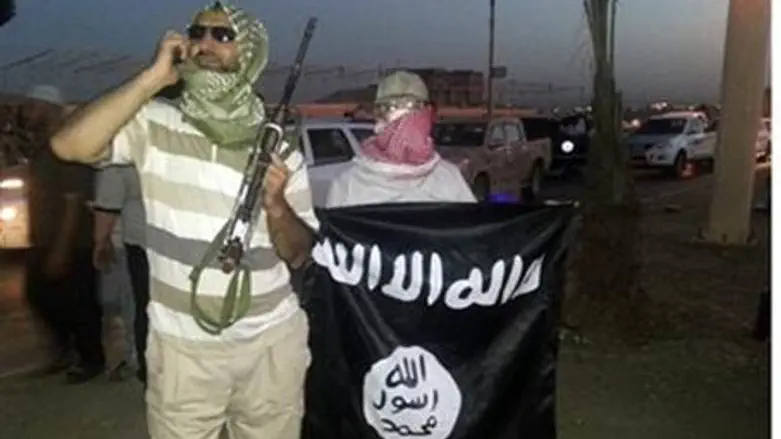
An Aljazeera report shines a light on the dark reality of life under the Islamist dictatorship of ISIS in Mosul, Iraq.
The report relies on interviews with former residents of Mosul, conducted in the Kurdish-controlled city of Erbil. Their names have been changed to protect their relatives who stayed behind.
One of the residents interviewed is Sidiqa, 50, who was euphoric when ISIS took contol but was in for a rude awakening. "I could not even go out on my own to get groceries," said Sidiqa, a former resident of Mosul. "As a woman, I was not allowed to go out without the company of a male family member."
“Billboards across the city instruct women what to wear, recommending long gowns, known as abayas, gloves and a piece of cloth fully covering the face,” Aljazeera says, but young men also suffer from a lack of freedom.
"We could no longer go out to coffee shops or recreational places to have fun, as simple as playing pool or smoking hookah," said Faris, Sidiqa's 18-year-old son. "We soon realized they were very interested in recruiting young men, and this meant we were targets. So, we decided to stay indoors as much as possible so as not to attract their attention."
ISIS has also redefined the school curriculum. "They removed biology, chemistry, history and even Islamic studies lessons from our school," said Faris, who quit high school after a month of attending his junior year. "They kept math and put heavy emphasis on Arabic and [introduced a new version of] religious studies."
Mutasam, a young man in his mid-20s, used to work as an aid worker for a local aid organization. When ISIS fighters entered Mosul last June, he decided to remain.
He recalled that a neighborhood barber had his shop closed for awhile and was forced to pay a hefty fine because he gave his customers Marine-style hairstyles that ISIS deemed un-Islamic.
"Men have to trim their moustache, and using razors [for shaving] is banned," explained Mutasam. "People are told to grow beards."
"If you happened to be on the streets during prayer times, especially in busy market areas, Hisba [ISIS's police force] would force you to go to mosque," recalled Faris. "Of course, we didn't feel we were praying from the heart any more."
